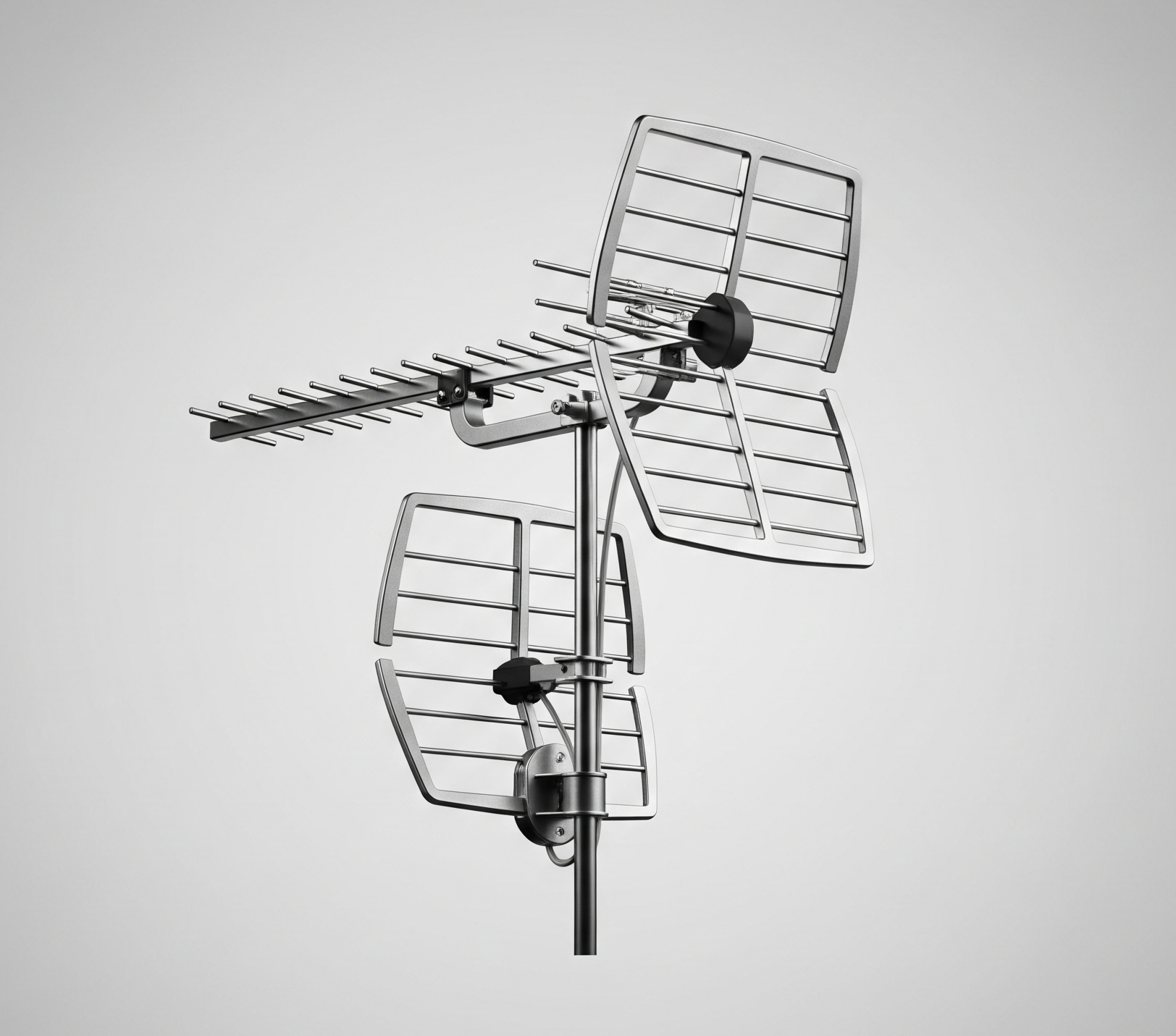Kingsgrove Branch:
TV Antenna Booster

TV antenna booster: It's the secret weapon for those frustratingly weak TV signals. Imagine crisp, clear images, ditching the fuzzy, pixelated nightmares. This guide dives into everything you need to know, from understanding signal strength to selecting the perfect booster and troubleshooting any hiccups along the way. Let's get your TV reception dialed in
This comprehensive resource will walk you through the essentials of choosing and using a digital TV antenna booster. We'll explore various types, explain signal reception, and cover crucial aspects like installation and troubleshooting. We'll also compare boosters to other signal enhancement methods, and address safety precautions. Get ready to upgrade your viewing experience
TV Antenna Boosters: A Comprehensive Guide
TV antenna boosters are essential tools for improving TV reception, especially when you're dealing with weak signals or long cable runs. This guide will walk you through everything you need to know, from understanding signal strength to troubleshooting common problems
Introduction to TV Antenna Boosters
TV antenna boosters, essentially signal amplifiers, are devices that strengthen weak TV signals. They work by amplifying the signal coming from your antenna, making it stronger and clearer. Different types of boosters cater to various needs and signal frequencies
- Types of Boosters: Boosters come in various amplifier types, each designed for specific frequency ranges. Some are designed for VHF (Very High Frequency) signals, others for UHF (Ultra High Frequency), and some are designed to cover a wider range. Knowing the specific channels you want to improve is key to choosing the right booster
- Why You Need a Booster: A booster is often necessary when your TV signal is weak, or if you have long cable runs. Obstacles like walls and trees can also significantly weaken a signal. A booster can help compensate for these factors and improve reception quality
| Gain | Price |
|---|---|
| 20dB | $20-$50 |
| 25dB | $30-$70 |
| 20-30dB | $50-$100 |
Understanding Signal Strength and Reception
Signal strength directly impacts TV picture quality. A strong signal translates to a clear, crisp picture, while a weak signal leads to fuzzy or pixelated images. Factors like distance from the transmitter, obstructions in the signal path (like walls or trees), and cable quality all influence signal strength
- Distance Matters: The further you are from the TV transmitter, the weaker the signal tends to be. This is a major factor in why apartment dwellers sometimes have weaker signals
- Obstacles: Walls, trees, and even metal objects can absorb or deflect the signal, leading to a weaker reception
- Cable Quality: Poor quality coaxial cables can cause signal loss. Using high-quality cables can help ensure a strong signal
- Signal Meter: Using a signal meter can accurately measure the strength of your TV signal. This helps identify whether the problem lies with the signal strength or other factors
Choosing the Right TV Antenna Booster
Selecting the right booster requires careful consideration of your specific needs. Understanding your signal frequency range is paramount
- Frequency Range: Ensure the booster's frequency range covers the channels you want to receive. If you're missing channels, it could be a problem with the frequency range
- Gain: The gain of the booster determines how much the signal is amplified. Higher gain might be needed for extremely weak signals
- Impedance Matching: Ensure the booster's input and output impedance match your antenna and TV. Mismatched impedance can lead to signal loss
- Noise Reduction: Look for features that reduce noise, which can improve the clarity of your picture
Installation and Setup of TV Antenna Boosters
Proper installation is crucial for optimal performance
- Connection Methods: Correctly connect the antenna cables to the booster. Follow the manufacturer's instructions carefully
- Grounding and Shielding: Grounding and shielding are important for preventing signal interference. Make sure the booster is properly grounded to minimize electrical issues
Troubleshooting TV Reception Issues with Boosters
Troubleshooting issues is a common process. Signal interference, noise, or poor picture quality can arise.
- Signal Interference: Signal interference is often caused by nearby electrical devices or appliances. Identify the source of the interference and take steps to mitigate it
- Signal Meter Use: Use a signal meter to pinpoint the source of the problem in your setup
HDMI Products from Schnap.com.au: Tv Antenna Booster
Schnap.com.au offers a range of HDMI products for enhanced connectivity and picture quality. They provide a variety of cables, adapters, and accessories to suit your needs
Integration with Other Components
TV antenna boosters can be integrated into home entertainment systems, including set-top boxes and satellite receivers. Matching impedances and using coaxial cables are important for seamless integration
Comparison with Other Signal Enhancement Options
Other methods, like signal extenders or splitters, may also enhance signals. Consider the pros and cons of each method for your specific use case
Safety Precautions and Considerations
Follow manufacturer's instructions for safe operation and installation. Ensure electrical safety when working with electrical components
Examples of Real-World Applications
Real-world examples demonstrate how boosters can improve reception in various scenarios, including apartments and homes with long cable runs. Improved signal clarity and fewer dropped channels are key improvements
Closing Notes
In conclusion, TV antenna boosters are a powerful tool for anyone experiencing weak TV signals. We've covered everything from choosing the right booster to troubleshooting common issues, ensuring you're equipped to tackle those signal problems head-on. Remember, proper installation and understanding your specific needs are key to maximizing your viewing pleasure. Now, go forth and enjoy crystal-clear picture quality
FAQ Section
What are the common reasons for weak TV signals?
Weak signals can stem from various factors, including distance from the transmitter, obstructions like walls or trees, and even poor cable quality. A signal meter can help you pinpoint the source of the problem
How do I choose the right TV antenna booster?
Consider the frequency range of your TV signal, the gain needed to compensate for signal loss, and the input/output impedance. A table comparing different booster types can be helpful
What are some common problems with TV antenna boosters?
Potential issues include signal interference, noise, or poor picture quality. Troubleshooting often involves using a signal meter to identify the source of the problem and implementing appropriate solutions
Are there safety precautions I should take when installing a TV antenna booster?
Absolutely! Always follow manufacturer instructions for safe operation. Grounding and shielding are crucial aspects to ensure safety and optimal performance

Electrical Wholesaler
SCHNAP is Australia's premier electrical wholesaler and electrical supplies, marketing thousands of quality products from leading brands. Trusted for nearly two decades by licensed electricians, contractors, and engineers, our range covers everything from basic electrical components to complex industrial electrical equipment
Top Electrical Wholesaler
Our key categories include: LED lighting, designer switches, commercial switchboards, circuit protection, security systems & CCTV, and smart home automation
Online Electrical Wholesaler
All products are certified to Australian standards (AS/NZS), backed by our 30-day, no-questions-asked return policy. Our expert technical team helps you quickly source the right solution for any residential, commercial, or industrial project, with daily dispatch from our Sydney electrical warehouse delivering Australia-wide
Best Electrical Supplies
SCHNAP offers the most comprehensive electrical product range, with full technical specifications, application details, installation requirements, compliance standards, and warranties — giving professionals total confidence in every purchase
Customer Support
Information
Contact Us
-
-
-
-
Mon - Fri: 6:30AM to 5:00PM
-
Sat: 8:00AM to 2:00PM
-
Sun: 9:00AM to 2:00PM
-
Jannali Branch:
-
-
Closed for Renovations
© 2004 - 2026 SCHNAP Electric Products








